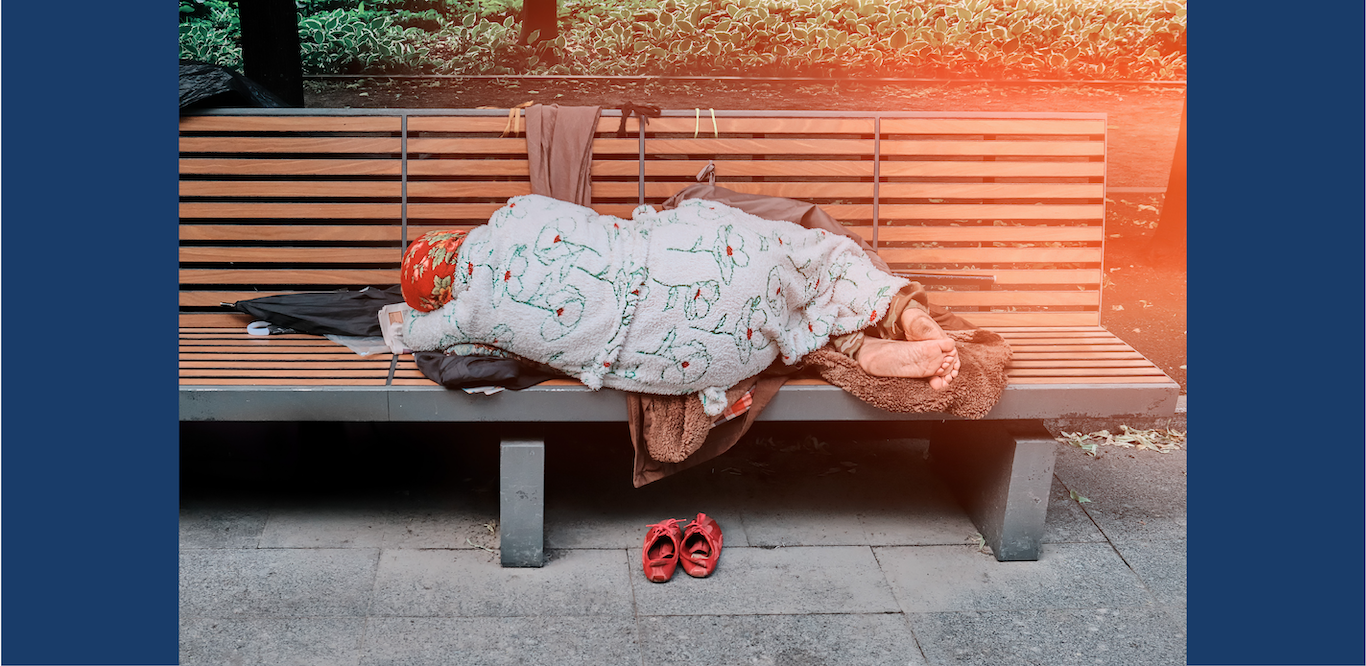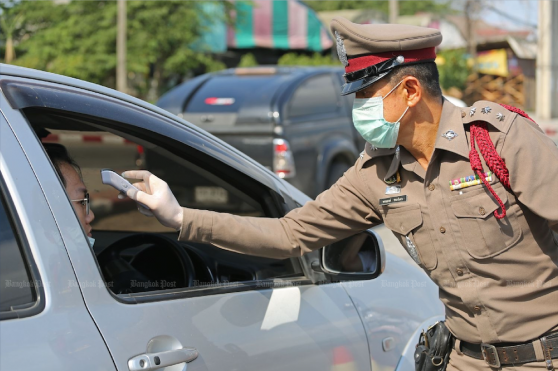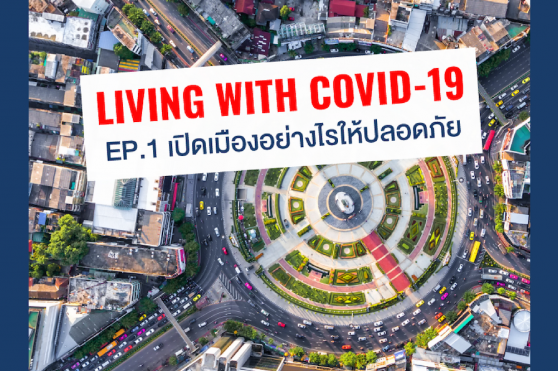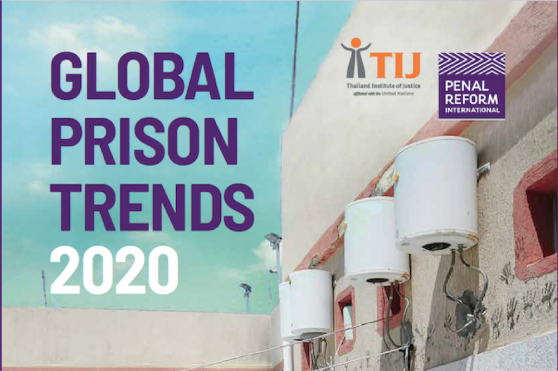"Leave no one behind" by recognizing "marginalized groups" that are highly affected by the COVID-19 pandemic and getting through this together into the new normal
The forgotten group of the population that fell through the cracks, those who failed to qualify for state aid, occupations that will not thrive during COVID-19, informal workers, those who suddenly became unemployed but still left struggling in big cities with high cost of living, women and children who are victims of domestic violence during lockdown period and patients under investigation (PUI) due to history of contact with infected that became social rejects.
They are examples of the "marginalized groups" that exist, and these are groups of people who failed to access aid and assistance. Some may have been overlooked or lack capabilities to seek support or maybe living in the shadows of hidden problems in society. Thailand Institute of Justice (TIJ), through the Rule of Law and Development Program network, recognizes that Covid-19 will remain until vaccines are accessible by everyone. The rationale behind organizing the second series of Living COVID-19 remote seminar named "Tackling with COVID-19 pandemic without leaving no one behind" is to look into the future on how we can thrive in this pandemic. The seminar held on the evening of 2 May 2020.
Prof. Dr. Kittipong Kittayarak, Executive Director of the TIJ indicated that "marginalized" population should not be left behind as the society move forward to the New Normal, which is also consistent with the centralized and transformative promise of the United Nation's Sustainable Development Goals (SDGs), Leave No One Behind.
TIJ Executive Director referred to the UN's findings that the economic downturn from COVID-19 is valued at 2 trillion USD, which will have an extremely severe impact on the global economy. World Bank assessed that the "new poor" will increase immediately to 11 million and 25 million will face unemployment, while 1 billion children are at risk of not getting access to education. In the context of Thailand, where 20 million are informal workers, half of which are Thai workers who are not registered in the social security system. Therefore, it is vital to discuss state measures and their accessibility, so no one is left behind nor forgotten.
"In this unprecedented time, people fear for their livelihoods more than the virus, if the hammer and the dance continue."
 Dr. Santitarn Sathirathai, Group Chief Economist and senior management of Sea Group (Garena, Shopee and Airpay) discussed how "The world was disrupted, but the implications on various occupations vary." According to Dr. Santitarn, the economic disparity will be more evident than ever due to the COVID-19 pandemic and there a research conducted that divided employment into four occupation categories with two indicators which are "jobs that could risk the broader spread of the virus" and "jobs that can be done remotely from home."
Dr. Santitarn Sathirathai, Group Chief Economist and senior management of Sea Group (Garena, Shopee and Airpay) discussed how "The world was disrupted, but the implications on various occupations vary." According to Dr. Santitarn, the economic disparity will be more evident than ever due to the COVID-19 pandemic and there a research conducted that divided employment into four occupation categories with two indicators which are "jobs that could risk the broader spread of the virus" and "jobs that can be done remotely from home."
This research finds that the least affected occupations are work that can be done remotely from home or work that requires minimum contact with people such as sociologist, economist, programmer, web developer, financial consultant or legal counsel; therefore, these occupations will not require aid.
On the other hand, occupations that took the hardest hit from the novel coronavirus and the city lockdown are jobs that can not be done from home, and that require interaction with large groups of people to generate income. Most of these jobs are in the service and informal sector such as taxi drivers, mass transportation drivers, cleaners, restaurants, tour guides, primary school teachers as well as medical personnel. The stimulus package of cash handouts can be offered to low-income workers or those who lack income, so they can stay at home and sustain themselves during this period. Thai government has rolled out this strategy, but there are still some loopholes in the social security occupation database, so some people fell through the cracks and count not get their hands on the financial support. The research suggests that "The state may have to intervene by offering temporary employment for workers of private companies that were affected." For example, the government can hire these workers as additional resources to help monitor compliance of social distancing or queue management at various locations such as reliefs items distribution points or the markets.
Occupations that are moderately affected but will be in for a long-term impact are occupations that can not be easily executed at home but require minimum contact with other people such as equipment operators in factories, foundry workers, farm workers, construction workers, production workers or auto body paint technicians. These jobs may still be available for now, but in the long run, post-COVID-19 time, there is a great tendency that these jobs will be replaced with machines and robots. Particularly during the time of the pandemic, employers are expediting the replacement of manual labors, therefore, aside from short-term support for these occupation categories, in the long term, it is important to consider skills development, upskilling, reskilling or career advice change as well.
Last occupation category is work that typically requires people interaction but can be shifted to internet and online platforms such as secondary or graduate school teachers, sales or recruitment agents. But realistically, to be able to work efficiently online requires technical know-how, the right equipment and affordable internet access. Therefore, proposed supporting measure and aid for this group is providing affordable and accessible internet service, as well as computer devices for small schools, online sales and online work skills training.
According this research, Dr. Santitarn sees that we are in the period of the New Abnormal, where impacts from COVID-19 have occurred and still ongoing. Before moving towards post-COVID-19, we still have to live and go about our lives until there is a vaccine for this virus. With such drastic disruption to the economy, people fear for their livelihoods more than the virus itself. So, during this period called the Dance, even though some lockdown restrictions have been eased and lifted, there is always a possibility of the Hammer to strike again.
Concerns for those who lost their jobs became homeless and did not get state aid. Fighting two battles with COVID-19 and economic downturn.
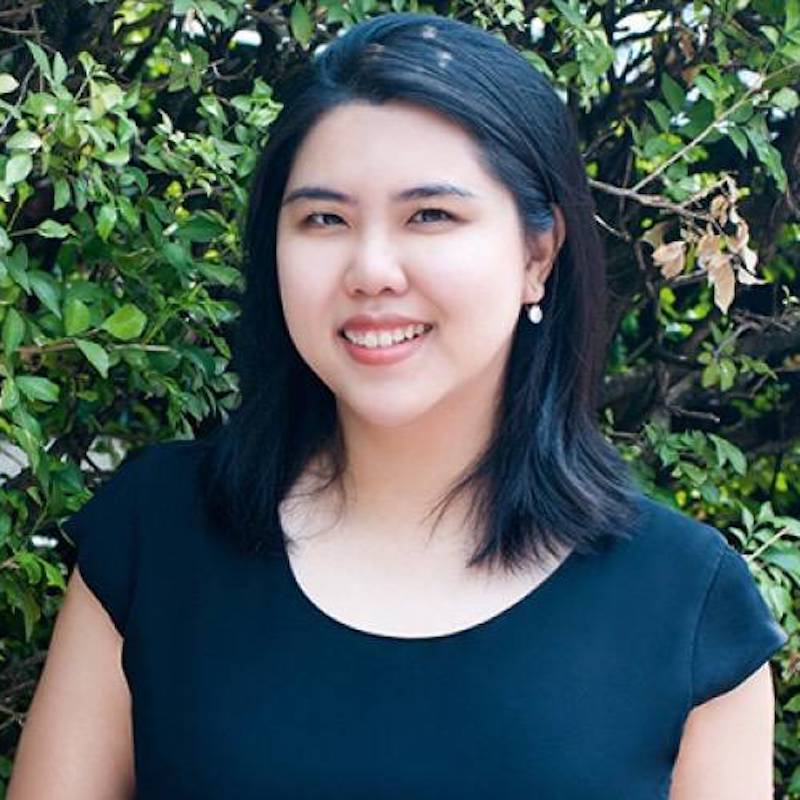 "Taejai.com" is a fundraising platform that has been operating actively during the outbreak of COVID-19 in order to source funds to aid a large number of people. Ada Chirapaisarnkul, Managing Director of Taejai.com, a philanthropic community for Thai society, recognizes marginalized groups of people who were not able to access aids and support from the government. In the past few months, she was able to categorize four marginalized groups that were affected by the virus in the first phase of the outbreak.
"Taejai.com" is a fundraising platform that has been operating actively during the outbreak of COVID-19 in order to source funds to aid a large number of people. Ada Chirapaisarnkul, Managing Director of Taejai.com, a philanthropic community for Thai society, recognizes marginalized groups of people who were not able to access aids and support from the government. In the past few months, she was able to categorize four marginalized groups that were affected by the virus in the first phase of the outbreak.
The first group is the lower-middle-income group. The second group is families living with elderly with underlying health conditions or living with people with disabilities. These two groups lack income; they became unemployed and living with limited movement, so they faced difficulties accessing medication and treatment.
The third group is people in poverty living in large cities in Thailand and not just limited to Bangkok Metropolitan. This group was immediately affected by unemployment due to lockdown measures. Being suddenly deprived of their regular income, they are facing the high cost of living, whether it be food, accommodation or other daily expenses. Most of the people in this group are not native to the cities they work in. Therefore there are discrepancies to be found in densely populated area records and actual figures of the population, subsequently leading to difficulties for them to access to state aid. Moreover, the living condition of this group put them at risk since they often share small spaces and not suitable for self-quarantine.
The last group is low-income families in lockdown areas, challenging their livelihood and their ability to access to assistance. Most concerning in this group are people who were let go from their jobs, who became homeless and unable to seek the state's aid. The challenges in responding to the group are two folds: during the lockdown, they are hard to track and when cities open they are ready to relocate to where jobs are, therefore risking being infected and also risking to transmitting the virus to others.
MD of Taijai.com proposed a 3-phase plan for the groups mentioned above, which are short, medium and long term. Short term assistance can respond to basic needs in the communities, food, medicine and basic hygiene items of necessities. Medium-term assistance can be provided to improve their capabilities to generate income and prepare them for long term survival if COVID-19 pandemic persists. As for the long term, the assistance can focus on the important social problems from COVID-19, which are education, homelessness, mental health and environmental issues.
Ada elaborated that Taejai.com's core responsibility is to manage donations, but due to influx of requests for such urgent needs of aids and assistance in marginalized groups; she had decided to launch a website called Infoaid.org. This website consolidates useful basic information such as hospitals, medical care facilities, medical equipment and location-specific needs. Taejai.com also initiated a sandbox project to recruit and boost employment in critically affected communities such as Bangkok, Yala and Pattani. The jobs and potential employers were considerate of social distancing measures, so the project was very well received by the communities, particularly for jobs that already have pre-existing demands. Yala province is a good example for cooks hired for children's food program.
"Domestic violence, silent danger during COVID-19 pandemic. A home may not be a safe place for everyone."
"A girl was raped by her father since she was 12, now she's 18 and still living with the father who raped her and her grandmother who is the only one who knew about this, but she's bed-ridden with illness. The girl did not disclose this story to anyone because she was concerned about her grandmother's wellbeing. But eventually, one day when she told her aunt about the incidents, her aunt suggested that when he attempts to rape her again, she should fight back to get some bruises or wounds for evidence of the assault. Then later on Valentine's day, she was raped again, she cried over it and went into depression state at school where she disclosed the story to her friends. Her friends went to the teacher then finally she got help."
 Santhanee Disayabutr, a public prosecutor of Ayutthaya's Youth and Family Case Division, shared this story as an example of how difficult it is for domestic violence cases to come into the light. With lockdown measures imposed across the country, this is the perfect formula to stir up violence and tension in the family. Despite the reduced number of domestic violence cases from last year from 155 to 103 cases, according to a survey conducted by Thailand Development Research Institute and Women and Men Progressive Movement Foundation, the reality may be otherwise. In reality, victims may not be able to access help due to lockdown measures, that girl may not have been able to disclose her story to her friends or teachers at all if she cannot leave her house.
Santhanee Disayabutr, a public prosecutor of Ayutthaya's Youth and Family Case Division, shared this story as an example of how difficult it is for domestic violence cases to come into the light. With lockdown measures imposed across the country, this is the perfect formula to stir up violence and tension in the family. Despite the reduced number of domestic violence cases from last year from 155 to 103 cases, according to a survey conducted by Thailand Development Research Institute and Women and Men Progressive Movement Foundation, the reality may be otherwise. In reality, victims may not be able to access help due to lockdown measures, that girl may not have been able to disclose her story to her friends or teachers at all if she cannot leave her house.
The public prosecutor added that from victims' perspectives, being subjected to quarantine, unemployment and losing income will definitely affect stress level. Stressed husbands have more probability of assaulting their spouses.
At the same time, from the view of victims' assistance service, they also face more difficulties to receive complaints, and during the pandemic, they are unable to access victims in the communities with less human resources due to lockdown measures with irregular work hours. Due to all these reasons, victims assistance has been delayed, investigations became more difficult, coordination with shelters were limited by quarantine measures, subsequently resulting to the delay of the whole justice system.
From the community perspective, the problems are even more evident because lockdown and social distancing measure prevent victims from being able to disclose or report the incidents timely enough.
She emphasized that tackling domestic violence cases has been more challenging during the COVID-19 pandemic because victims are unable to access reporting mechanisms. Therefore, in response to that, it is crucial to increase access to assistance such as additional shelters, keeping pharmacies open and designating additional locations for reporting. She raised an example of how technology can help, "MySis" application enables victims to report incidents through chatbot, and this also increase the probability for victims to disclose incidents. With a centralized database, line agencies can benefit in terms of investigation and prevent revictimization from repeated interviews. Even though the application has not been widely used before, but during the pandemic it has become the principle channel to work with victims and cases. This could be the new normal for the justice system and could result in a positive improvement on domestic violence in the long run.
"Facilities for COVID-19 Patients Under Investigation who cannot quarantine at home due to social rejection."
"It was tough, I lost my wife to COVID-19, and everyone in the neighborhood knew about this. I had to consult the hospital what I should do because losing my wife was bad enough already, I had to deal with the neighbors, and it gave me a lot of pressure. I wanted to stay somewhere else so I can cope with the situation too. I could not stay at home."
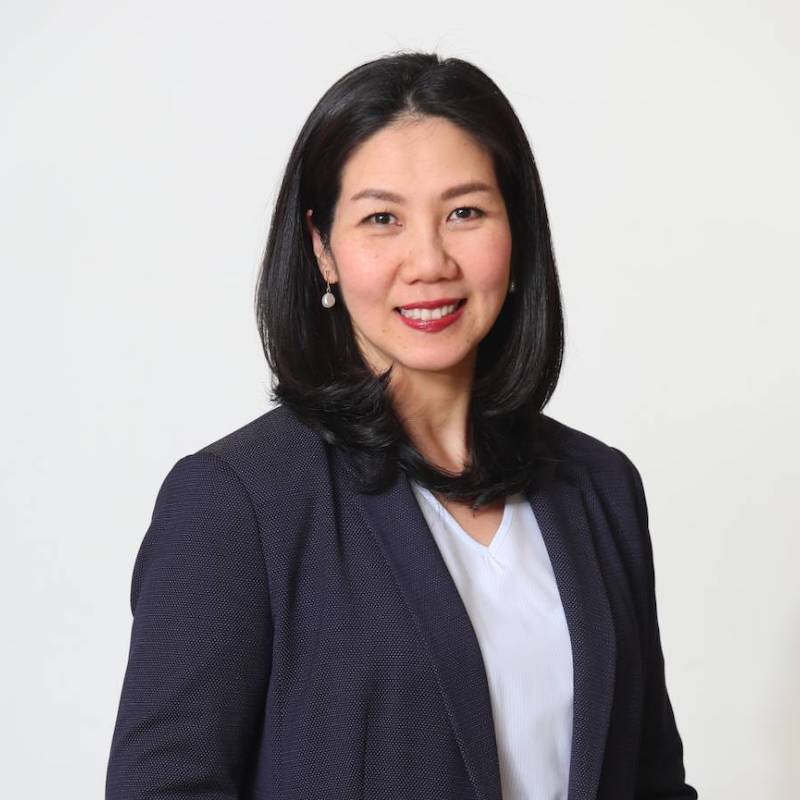 This was a story from one of the people in Pathumthani local quarantine facility, which is managed by Daowadee Charnpanichakarn, Managing Director of Knowledge Development Center Co.Ltd. She explained that the quarantine center for the marginalized group is vital, particularly for those with limited income and living with a large family in cramped spaces. Once a person is identified as a Patient Under Investigation or PUI, but his/her home is not suitable for social distancing, self-isolation or the community is questioning this person, local quarantine facilities can cater to this group of people. Once they can openly identify themselves as being under investigation, the community is safe because this prevents further transmission and prevents debilitation of the health care system.
This was a story from one of the people in Pathumthani local quarantine facility, which is managed by Daowadee Charnpanichakarn, Managing Director of Knowledge Development Center Co.Ltd. She explained that the quarantine center for the marginalized group is vital, particularly for those with limited income and living with a large family in cramped spaces. Once a person is identified as a Patient Under Investigation or PUI, but his/her home is not suitable for social distancing, self-isolation or the community is questioning this person, local quarantine facilities can cater to this group of people. Once they can openly identify themselves as being under investigation, the community is safe because this prevents further transmission and prevents debilitation of the health care system.
Another example is the local quarantine facility in Yarung District, Pattani province that was set up by the local hospital and District Public Health at a school to take in referrals and PUI cases from the hospital or complicated cases of Malaysian patients who are unable to return home for quarantine. Aside from responding to COVID-19 patients, this facility also serves as an observation base for Malaria patients, which means medical personnel are getting extra workload. But local quarantine facilities can ease up such a tremendous amount of work from the hospitals. And once patients complete their 14-day quarantine period, they receive relief bags along with release memos from the district and permit to travel in Pattani province. "Local quarantine facility must serve as a standard location to prevent transmission and operate on the principle of humanity, particularly to a marginalized group."
"Access to aid, challenge in management, collaboration is key."
"A devasting example would be a situation where farmers that had to dispose of all fresh milk products due to school closure and all fresh eggs because they could not logistically transport them while at the same time children in the communities are facing food scarcity and increasing malnutrition from cities lockdown."
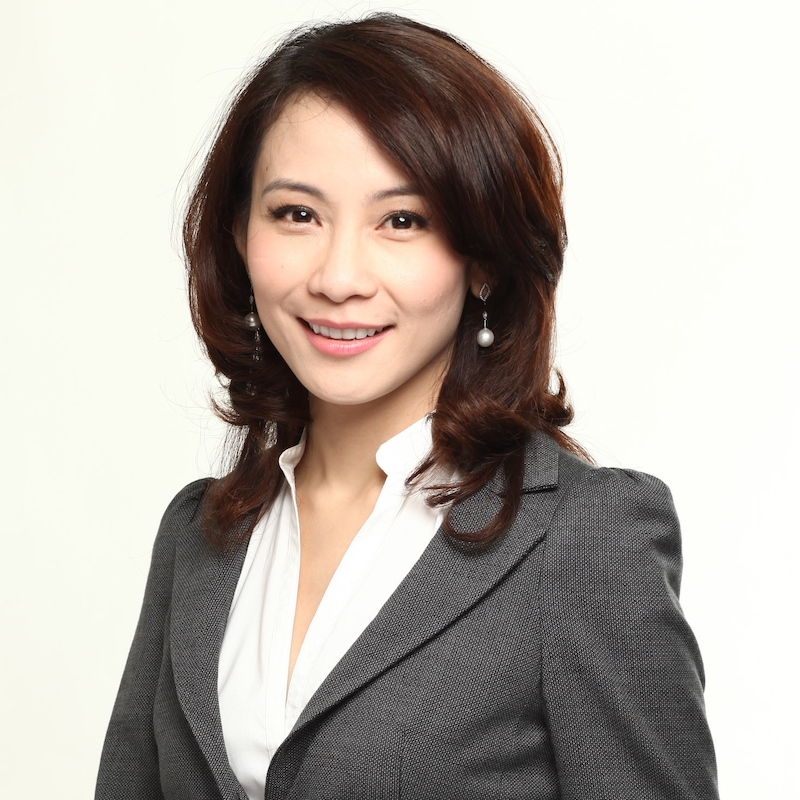 Dr. Sutapa Amornvivat, CEO of SCB Abacus Co., Ltd. and the founder of "Sharing Project" for the marginalized group during COVID-19 pandemic gave an example of farmers disposing of fresh milk products and eggs in this critical time where food demand is rising. The situation reflects disconnection and mismanagement, so if supply and demand are met, the problem would be solved. The technology was used through a chatbot called "Sharing Group." This chatbot acts as a connection point for people in need and people who want to donate.
Dr. Sutapa Amornvivat, CEO of SCB Abacus Co., Ltd. and the founder of "Sharing Project" for the marginalized group during COVID-19 pandemic gave an example of farmers disposing of fresh milk products and eggs in this critical time where food demand is rising. The situation reflects disconnection and mismanagement, so if supply and demand are met, the problem would be solved. The technology was used through a chatbot called "Sharing Group." This chatbot acts as a connection point for people in need and people who want to donate.
"Sharing Group" chatbot operates in 3 processes which are Share – Receive – Connect. This system facilitates efficient food sharing by enabling donors to connect with the local restaurants to cook and donate on their behalf if they are unable to go there themselves.
"Sharing Group" team consists of mostly volunteers who do not know each other, working pro-bono and providing service on the basis that they do not contact with cash, kind and goods. Since 18 April 2020, the project had already facilitated 10,000 food boxes through 200 or more connections. One food distribution point is limited to 40-60 boxes to prevent overcrowding. Private sectors and civil society were asked for recommendations on how to improve the food distribution method, streamline the work process and enhance information sharing and answer the question "How can we maximize the use of technology for people in need, donors and the city of Bangkok?"
Dr Sutapa indicated that there are two new types of marginalized groups the emerged from the COVID-19 pandemic.
The first type is the result of antibody testing, which is occurring in many countries. This test may bring about even greater social disparity because those with antibody will be free to participate in socio-economic activities more than those who lack antibody. There is no definite right and wrong to this, but this may a clear divide between children who have antibody and those who do not and who are allowed to go to schools.
The second type is termed as "digitally challenged group". Disruptive COVID-19 pandemic caused cities to lockdown and forced us all into the new normal, which requires digital tools to live. This future may have "come too soon" for a large group of the population who are still lacking digital skills, which could worsen the digital divide. Many countries' cybercrime rate has increased tremendously during the lockdown period because a lot of people still lack understanding of the digital world.



